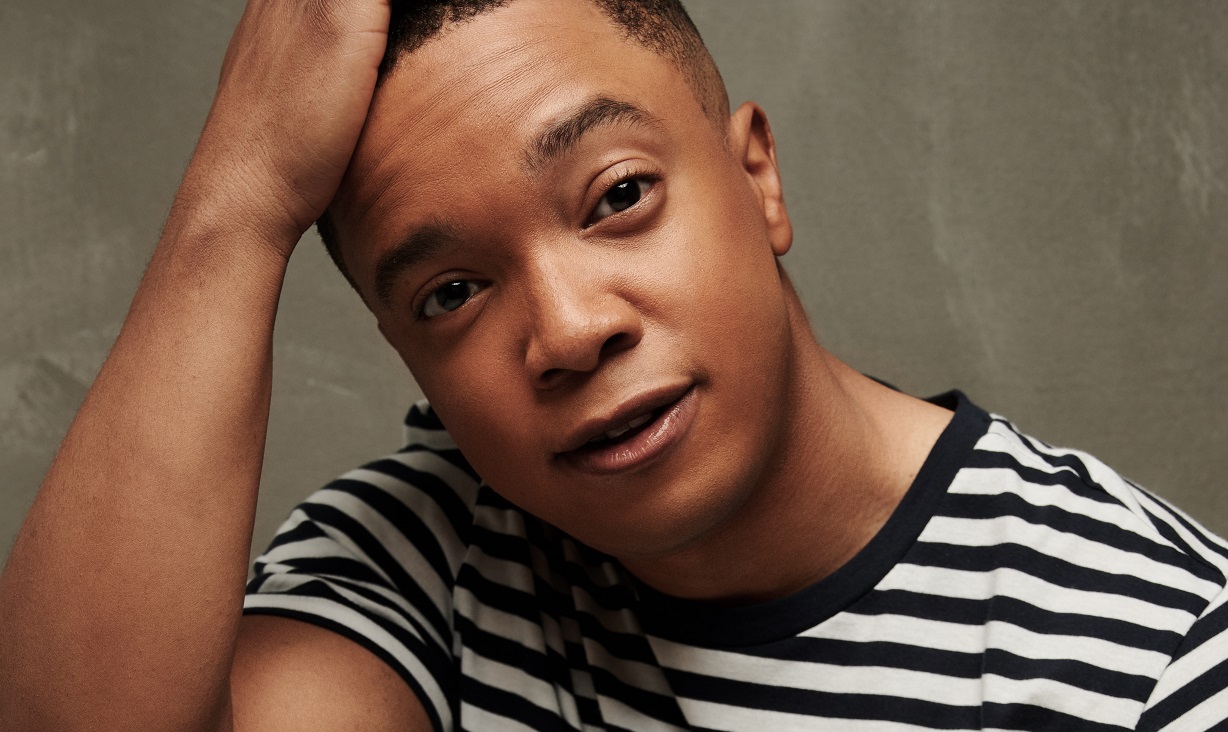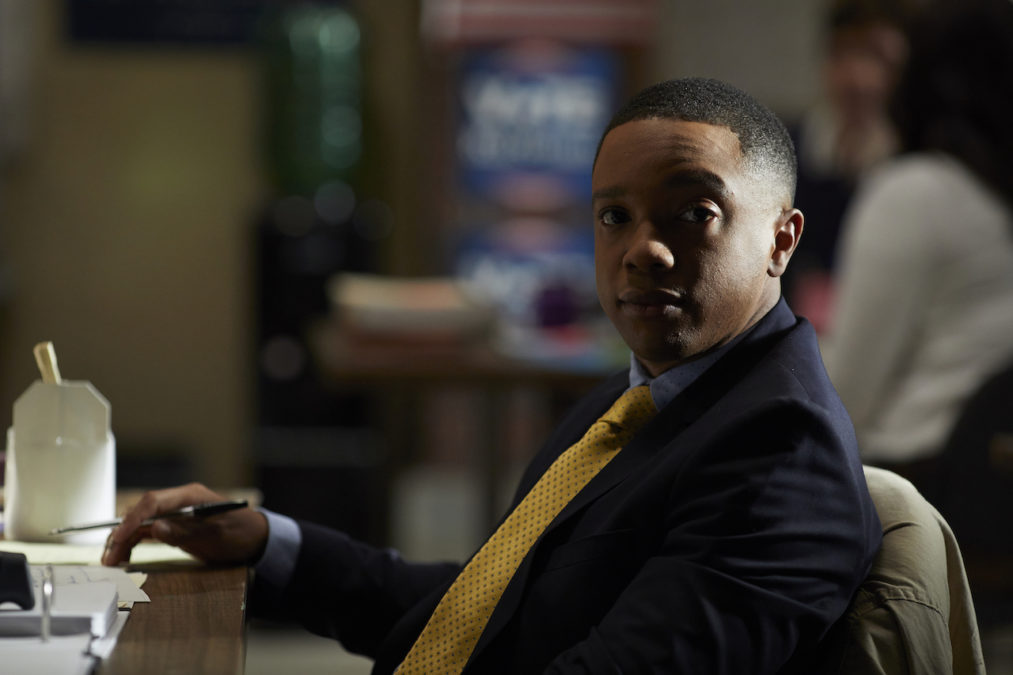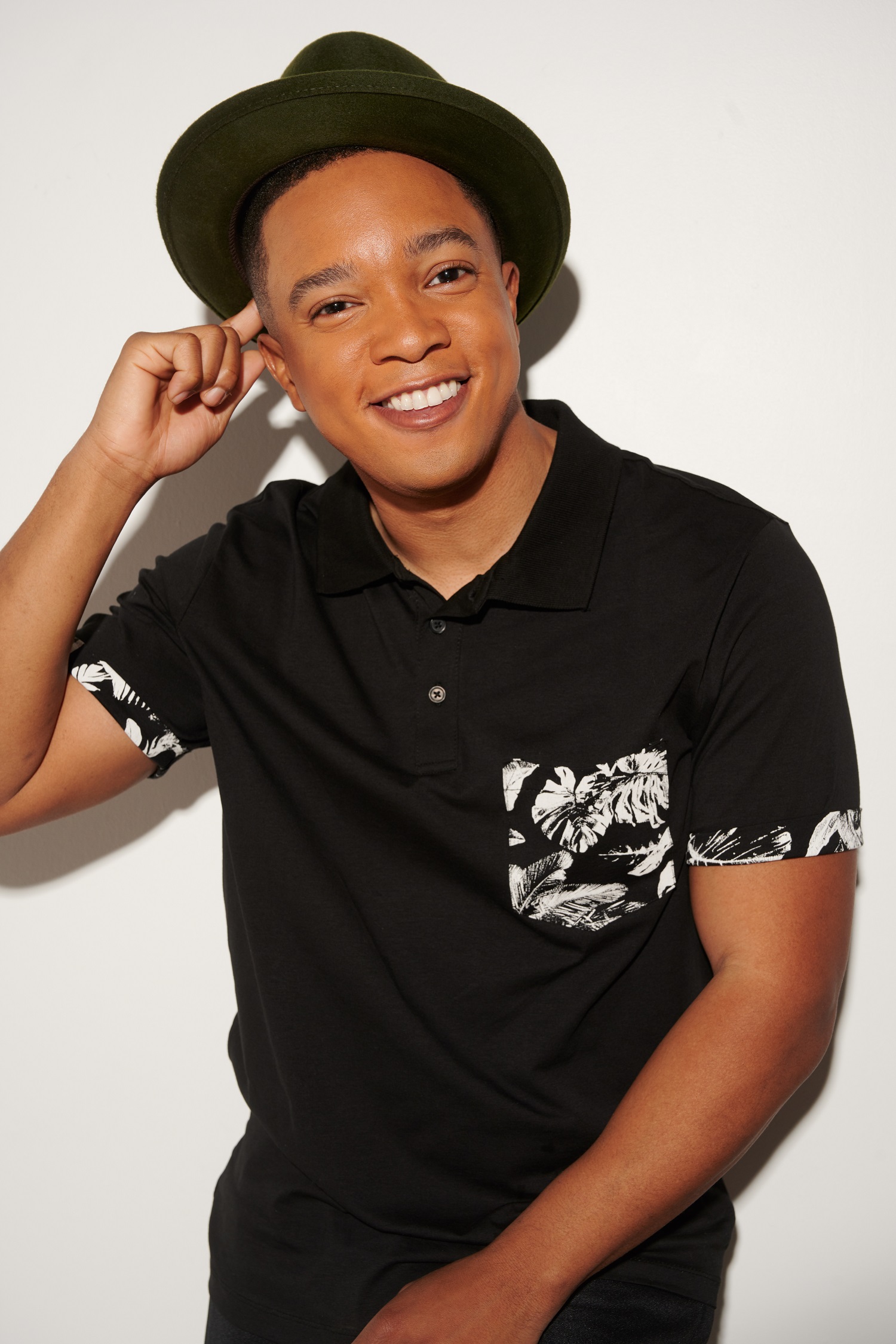Exclusive | ‘Designated Survivor’ star Benjamin Watson: I had to come out to my mum twice
The actor portrays openly gay and HIV-positive Dontae in the hit TV series
By Steve Brown

Interview: Steve Brown
Designated Survivor actor Benjamin Charles Watson talks sexuality, coming out and LGBTQ rights in Jamaica in an exclusive interview with Attitude.
The actor joined the cast of the hit US politcal drama – which also stars Keifer Sutherland – in the third season, now on Netflix after the show was originally cancelled.
Although, Benjamin plays the openly gay, HIV-positive social media whiz Dontae Evans, the actor struggled to come to terms with his own sexuality.
However, through playing the character, he found the confidence to finally be the person who he truly is.
Now the 34-year-old actor speaks exclusively to Attitude about his sexuality, coming out to his mother twice and whether Dontae would be welcome in the current White House.

You play the social media whiz Dontae, how do connect with your character?
Dontae is gay, I just recently came out too. He didn’t really get on well with his family, just the ins and outs of being a gay, black male. I connected with that personally on a humanistic level and then from that, I just kind of build the ins and outs of who the character is and what he does.
But connecting with Dontae was pretty easy because I touch on this human level of what he wants in this world and connected through his desire to find love.
The show tackles a lot of LGBTQ issues, including HIV and transgender characters. Did that help you publicly come out now?
It was hard for me to come out because I didn’t want to define myself as Ben Watson, the gay, black guy. Being gay is a part of Dontae but it’s not who he is as a human being.
So for me, after I saw that and started to play Dontae and see how strong a character he is, and how he doesn’t define himself by his sexuality, for me personally, finally coming out, I was like, ‘Oh, I can define myself as gay but I don’t have to be like this is all I am.
So, for me, Dontae gave me a little more clarity about who I am and who I can come out as being and he also showcased to me I can be so many different things and not just be a gay guy.
It was the perfect time to come out and it was just a great learning lesson that I learnt from my character. It just made sense.
There is just so much stigma against HIV and all these things and we are pushing U=U in the show, and I just wanted to showcase this character and showcase me as a person saying that, ‘Hey you can be a gay guy and you can basically have anything you want’.

You mentioned the HIV and there is still a huge stigma around it. How did you handle playing a HIV-positive character?
Honestly it was hard. I got the script and I read it and was like, ‘Woah. I did not see that coming’.
So, I did a lot of research. I had to educate myself on HIV because, I’m not going to lie, but I had stigma towards it because I didn’t understand it.
So I had to literally read so many articles and watch loads of films just so I could understand what HIV is and I researched on the new drugs and PrEP and I educated myself so fully that I understood where Dontae was coming from.
It just had a lot to do with educating myself because I did not know a lot about HIV, and I should have been doing research about it and then this character came up. When this scene came up, I fully understood why Dontae did what he did on the show.
So, I humanised him as an individual, but I had to educate myself and understand what HIV is, that was an eye-opening experience.
A lot of people know about it but don’t actually know what it is or how it is transmitted and how the drugs we have right now are so effective, it’s almost impossible to pass it on to somebody.
Designated Survivor has a number of LGBTQ characters themes, but do you think Dontae would be able to be in the current White House?
Absolutely not. Absolutely not. One because he is African American. Two because he is gay and three because he is HIV-positive.
There’s no way I think he would be in that White House, if he was, he would hide he was HIV-positive or that he was gay. But there’s no way I think he would be in that White House.
Most gay men know that U=U but it’s great for a mainstream show to push this forward.
U=U is still a term that is relatively new, and I honestly didn’t hear about until about three years ago.
I started researching it but a lot of people don’t know what that term is and I am hoping this show and character will elevate the education on it because it is a term in the LGBTQ community but a lot of other individuals don’t know that term and are still freaked out about it.
Diverse LGBTQ characters are still a minority in mainstream media. How do you think your role will help BAME LGBT people come to terms with their own sexuality?
I am really hoping that it helps a lot of people. I am getting a lot of people messaging me thanking me for this character.
When Moonlight came out and I watched it, I started sobbing because I was like, ‘Wow, this is the first time I am actually being represented on film’ and it was such an incredible story.
I am getting a lot of messages from people saying thank you because they want to be represented because it’s still a taboo topic that people are still terrified about.
I received a message from someone saying thank you for portraying a character that is not hated or being hurt.
This is one of the first times you have publicly spoken about your sexuality. How did you come out to your family and friends?
I have a pretty small group of friends and I can count them on my hands. It was very easy. We are very close knit and we talk about how we feel, life, what we want, we are very close.
My family was easy. I came out to my mum, the first time – I came out to her twice, but it finally stuck in September 2016 – she cried and finally accepted.
I thought my dad was going to be the hard one, but he was ok with it because his sister told him years ago, so he has been ok with it forever. But my dad is an old guy now, so nothing really bothers him anymore.
But in 2016, I ‘recame’ out to my mum via text message, which is the worst way to do it. I was drunk, and it was a massive text message and I fell asleep and was bombarded from messages from my mum saying, ‘call me, call me’.
We talked and she cried a little and we talked and talked and now she’s ok with it. She was worried because I’m black and I’m gay and she thinks it will be a little harder for me, but it’s been incredible.
When you started your acting career, were you ever advised to not come out?
I wasn’t really out in my regular life; I didn’t understand my sexuality until early mid-20s. Then when I had my first show, The L.A Complex, and played a gay character, it wasn’t the right time to come.
Back then, in 2012/2013, it was still a bit taboo and I was not comfortable in my skin at all and I didn’t want to come out period, it was such a hard time for me.
Playing a gay character, I don’t want to say it messed me up, but he was going through so many things and trying to understand love and what love was and I was still trying to figure out who I was as an individual and what my sexuality was and also family and all the dynamics of thinking they were going to hate me. I was just petrified of coming out and my acting career would just die.
I was just saying to myself, ‘You cannot come out because you will never be an actor again’.
There are still actors who are still in the closet. What advice would you give them?
That’s such a hard thing. Especially if they have been working for such a long time and they have a very specific audience and are having a female driven audience that absolutely love them, there’s a huge fear of coming out and all of a sudden their career will dry up like I thought.
They are a brand and it’s a huge, huge fear of… my situation is so different to anyone else’s.
I primarily play gay characters so for me it was simple and easy but if we are talking about other celebrities who are huge actors that are primarily known for onscreen chemistry with females then it is a possibility that all of a sudden they feel their entire brand will be destroyed and that they might never work again. That is a fear that they may never get over.
2019 has seen a step forward in LGBTQ rights in some countries such as Botswana, Taiwan, Ecuador and even Hong Kong has made small steps. But your home country Jamaica is very much still conservative. How does that make you feel?
Honestly, I really, really hate it. There’s always that little bit of fear. There’s always that fear of if I go, people will recognise me. So there’s that fear and also coming out, will I ever be able to go back down to Jamaica?
But in terms of what Jamaica is still doing, it’s heartbreaking. I really, really effing hate it. The country is driven so much by religion.
Every Sunday you go to church, I’ve been in some of those churches and listened to the sermons and it’s a repeated cycle of hating homosexuality and hating transgender and there’s so much hatred and I don’t even know if that’s ever going to change because it’s so bombarded and pushed into the cycle for generations over and over and over again.
And I’m hoping that I can somehow in my life change that aspect and showcase that yeah you can be gay and be Jamaican and life can be great. But it’s still heartbreaking.
Season 3 of Designated Survivor is now streaming on Netflix.
Photography: Noah Asanias
Grooming: Frida Norrman
Styling: Derek Perret
